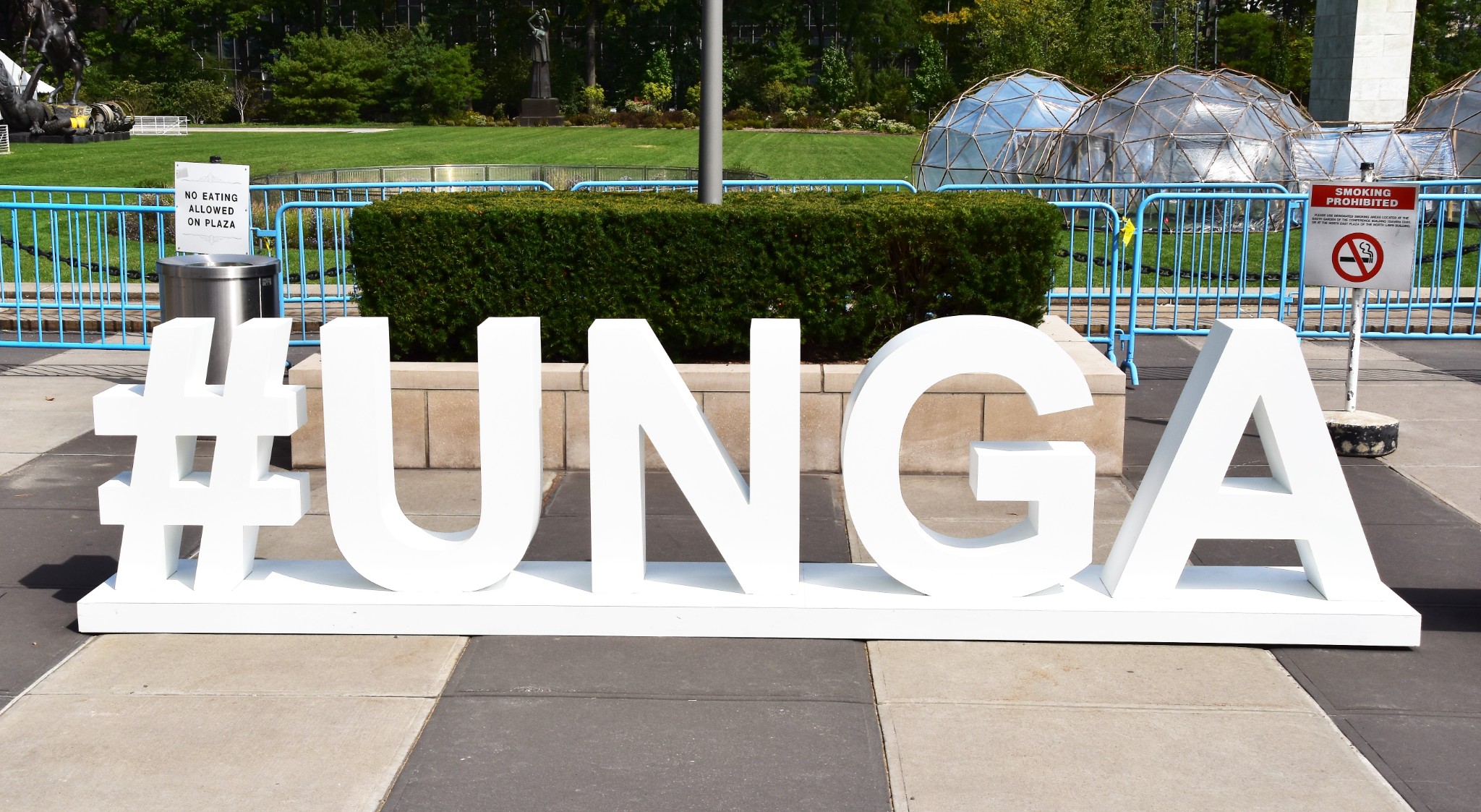 Photo Courtesy: Diplomatic Security Service on Flickr
Photo Courtesy: Diplomatic Security Service on Flickr
UNGA 75 – A Virtual Convocation
The 2020 session of the United Nations General Assembly (UNGA) began this week. A momentous occasion, this year marks the 75th anniversary of leaders of UN nations coming together to multilaterally tackle the world’s biggest challenges. The goals for this year’s assembly are abundant. In addition to the traditional high-level general debate, which is scheduled for September 22-29, and the 75th anniversary commemoration of the United Nations, President-elect H.E. Volkan Bozkir of Turkey will preside over the Biodiversity Summit, the 25th anniversary of the Fourth World Conference on Women, and the promotion and commemoration of the International Day for the Total Elimination of Nuclear Weapons.
While generally seen as a positive force in the world, the UN still grapples with relevance. There are many who question if the UN is an organization for and by all rather than some. Others criticize the power of authoritarian countries in the organization, and its seeming inability to tackle many of the world’s problems. Place the COVID-19 pandemic on top of this challenge and UNGA 75 has its work cut out for it.
A Year without Signals
The customary yearly routine of world leaders convening at the UN Headquarters in New York City will not happen this year. Special rules have been made to create a high-level general debate which occurs virtually rather than in-person. The sometimes theatrical speeches given by national leaders for a loosely enforced 15-minute time limit will be given as pre-recorded videos. Similar to grievances expressed by universities and other educational settings where social interaction is valued, personal interaction is lost in this kind of situation. Laughter inspired by others is not really seen, passionate applause is not found, expressions of others’ doubt or motivation cannot be observed.
Unseen Sidelines
More importantly, the current pandemic has a profound effect on what happens outside of the general assembly sessions. Bilateral talks that would typically happen in person on the sidelines are now also relegated to virtual spaces, if they happen at all. While topics are discussed in private during the talks, the press availability session which concludes a sideline meeting is a haven for diplomatic signaling. Common practice has been for leaders of two countries to conclude their meeting with a smile and handshake; this all being captured by multitudes of press. Such sideline meetings can be as brief as 26 minutes or as long as two hours.
COVID-19 will test the sincerity and effectiveness of bilateral relations without the well-known images of two world leaders smiling and shaking hands. Historically speaking, this gesture was used to signal that neither party wielded a weapon. This idea is used to this day; differences aside, there is a bond or social contract that has been established between the two nations.
It is easy to think of this year as an anomaly, that everything will be back to normal next year. However, the United States cannot afford to rest on these laurels. The twenty-first century has shown the world an America with fewer foreign policy achievements than in the past. Credibility is being put to the test, resulting in the UN perhaps moving on without America’s leadership. The Biodiversity Summit is testament to the urgency of addressing climate change. Repeated withdrawals from climate agreements and a lack of interest in taking part in multilateral efforts do not give the best signal when wildfires are inundating the West Coast and hurricanes and tropical storms are rapidly developing. On top of that, America has made it clear that combating COVID-19 will also be a solo endeavor.
Perhaps the greatest irony to come out of the 2020 UNGA is that renewed calls for multilateralism will happen from within isolation. Whether the handshake will return or be a tradition of the past is still too early to tell. Nevertheless, it would behoove America to show to the world a literal or figurative handshake with other nations who are committed to peace and diplomatic progress. Not only will this show that diplomatic forums like the UN still have value to the United States, but it will also show that we are willing to help other nations tackle the greatest challenges of the twenty-first century.





